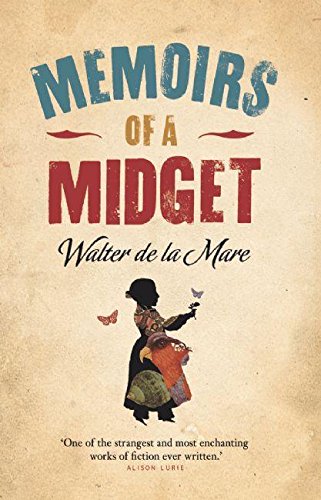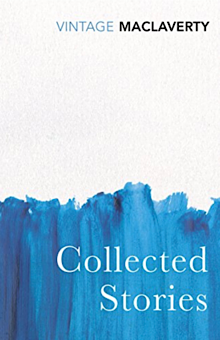
PART FOUR, AS CONTINUED FROM HERE: https://nullimmortalis.wordpress.com/27208-2/
My other reviews of Walter de la Mare: https://dflewisreviews.wordpress.com/2022/11/02/my-reviews-of-walter-de-la-mare-in-alphabetical-order/
My previous reviews of older or classic books: https://dflewisreviews.wordpress.com/reviews-of-older-books/
When I read this novel, my thoughts will appear in the comment stream below…


MONK’S HILL
Chapters Forty-Four and Forty-Five
This is the crux or epiphany of M’s Memoirs, I sense, having read them once before fifty plus years ago. It seems appropriate that I now re-read these chapters on this Christmas Day, as M is reborn within a dream as a soldier on a battlefield. Also, she has been exiled in shame to countrified Monk’s Hill from the social heights of No. 2, because of her behaviour at her own coming of age banquet, and the ‘green stuff’ she had imbibed as spiked by Percy. But from bad things a resurrection happens, as she comes to terms with her own feelings for Fanny and crude Adam Waggett. But what of Mr Anon, I ask myself?
It is the circus — so evocatively, almost frighteningly described by the God’s Eye of Wanderslore’s WDL(M) — that trundles by her new abode, with all its caged and freakish accoutrements, and her sudden realisation that she herself could be a ‘gold mine’ for such a scenario, as she is told. This is the epiphany itself, I guess, and I think again of Angela Carter’s ‘Lizzie’s Tiger’ that I first read and reviewed here only a comparatively short while ago.
Meantime, just two of my takes from a choice of many, in these passages from the two chapters…
“In that sheltered half-light I stood myself before a down-tilted looking-glass. If I had been malshapen, limbless, contorted, I would have drowned myself in mud rather than feed man’s hunger for the monstrous and obscene. No, I was a beautiful thing, even if God had been idly at play, when He had shaped me, and had then flung away the mould; even if to Mrs. Monnerie I was nothing much better than a disreputable marionette. So I boasted myself. Percy’s Chartreuse had been mere whey compared with the fleeting glimpse of a tame circus elephant.”
“I was but a kind of infinitesimal will-o’-the wisp gliding from peak to peak of an infernal mausoleum of which every eye, though dead, was watching me. But there was one Eye …”
Chapter Forty-Six
“In the attitude of Madame Recamier in the picture, I reclined on a lustrous spread of crimson satin and rabbit skin draped over a small lump of wood for bolster to give support to my elbow.”
It is tellingly Adam W who takes, in Chakka’s cage, M the ‘me’ of these entrancing memoirs to the circus, and she negotiates a fee for her future work as exhibit and living doll upon a pygmy steed, And I am indeed more than entranced at her entrance to this world. And her eye to eye empathy with some of her public. Her subsumption of self at some sort of fulfilment of process as initially triggered by the above elbow moment.
“And a peculiar rapturous gravity spread over me. When one’s very self is wrapt in the ordeal of the passing moment, is lost like that, out of time and space, it seems, well – another presence had stolen into my mind, had taken possession. I cannot explain.”
Chapters Forty-Seven and Forty-Eight
“Isn’t half the world kicking down the faces of those beneath them on the ladder?”
Quiz question for the future: who said that in this book? Who spins the truth in these chapters the most?,
Another turning-point for M, as her love-hate relationship with Fanny crystallises, and she is determined to wreak some crux from her circus showmanship. One more show to do and earn some crowns? To and fro wherever in Kent the circus winds in a cage wielded by Adam W? She lists, amidst her plight of aloneness in this world, some of the characters we have met…
“Mrs. Monnerie there; stepping into her brougham, ebony cane in hand, Marvell at her elbow; Mrs. Bowater languishing on board ship, limp head in stiff frilling; Sir Walter dumb; the showman cursing his wretched men; the bills being posted, the implacable future mutely yawning, the past unutterable. Everything in its orbit. Was there no help, no refuge?”
She also thinks of Anon’s consumption, while she dallies with a blue butterfly, and is determined to return to him, or is she not? But she does also glimpse another, presumably full-sized, man in the audience of her circus show…
“Aloof, his head a little bowed down, his face in profile, he stood there, framed in the opening, dusky, level-featured, deep-eyed – a Stranger. What in me rushed as if on wings into his silent company? A passionate longing beyond words burned in me. I seemed to be carried away into a boundless wilderness – stunted trees, salt in the air, a low, enormous stretch of night sky, space; and this man, master of soul and solitude.”
WDLM?
“What was the meaning of it all – this enormous ocean of time and space in which I was lost? Never else than a stranger. That couldn’t be true of the men and women who really keep the world’s ‘pot boiling’.”
Chapter Forty-Nine and Fifty
“There is our beloved Sovereign on her throne; and there the last innocent little victim in its cradle; and there’s the old sun waggishly illuminating the whole creaking stage. Blind beggar and dog, Toby, artists, authors, parsons, statesmen – heart and everything else, or everything else but heart, on sleeve – and all on show – every one of them – at something a look. No, my dear, there’s only one private life, the next; and, according to some accounts, that will be more public than ever. And so twirls the Merry-go-Round.”
That is said by Mrs M, that we are all on stage, said amidst mild ‘midget-baiting’, with Susan, Fanny and M herself, debating M’s concern for another midget on circus-show called Angélique. None of us unique.
And so to a new section between these two chapters: WANDERSLORE and to Mr Anon. A chance deliberate encounter of sorts as he rescues her from passage around quagmire and over stile. An escape, a fear of claustrophobic life, but also fear of escaping it? Death or a fairy tale eternity?
“Shouldn’t life be a High Road, didn’t he think; surely not a hot, silly zigzag of short cuts leading back to the place you started from, and you too old or stupid, perhaps, to begin again?”
Chapter Fifty-One and Fifty-Two
“The old pony plodded up yet another hill; we went clattering down its deep descent; and there, in the green bowl of a meadow sloping down from its woody fringes above, lay scattered the bellying booths, the gaudy wagons and cages of the circus. All but hidden in the trees above them, a crooked, tarnished weathercock glinted in the sunset afterglow. Lights twinkled against the dying daylight. The bright-painted merry-go-round with its staring, motionless, galloping horses was bathed in the shine of its flares, a thin plume of steam softly ascending from its brass-rimmed funnel. A knot of country boys, gabbling at one another like starlings, shrilled a cheer as we came rattling over a stone bridge beneath which a stream shallowly washed its bank of osiers. I laughed at them, waved my hand. At this they yelled, danced in the road, threw dust into the air. Not, perhaps, a very friendly return; but how happy I was, all anxiety and responsibility gone now. The faint, rank smell of the wild beasts mingling with the evening air was instilling its intoxication in my brain. I longed for darkness, the din and glare; longed for my tent and the gaping faces, for the smoky wind to fan my cheek as I bobbed cantering round the ring.”
This is literature’s apotheosis of light and dark circus, the freeing of Midgetina’s spirit, the painted masquerade in the living transmigrated role of Angélique for greedy eyes, even Mrs M and the gentry turn up to gawp at this tableau, crucially…
“Mrs. Monnerie had paid for elbow room.”
Mr Anon and M merged, as a further transmigration? …as he clumsily fills in for her on the horse act, before the elephant comes on. No way to do justice to these two chapters and their interlinking tensions, glances, mergings, imprisonings and freedoms. ‘The showman’, too, who might be the man too mean to be me, who is WDLM.
“Would he not realize, too, that even my small body had its value, and was admired in a dismal world that cared not a jot for the spirit that inhabited it?”
“‘I dreamt that I dwe-elt in mar-ar-ble halls,’ I piped out in a quavering falsetto. The folly of taking things so solemnly. What was humanity but a dressed-up ape?”
“Yet so much alone were she and I in that last infinite moment that we might have been whispering together after death.”
“…the watching multitude beneath the enormous mushroom of the tent,…”
We have all paid for ‘elbow room’, I say!
More than just elbow, more a mortal pain to supplant those now vanished mergings and circus smells… three very short chapters… and beware SPOILERS galore below while the last chapter of these memoirs is writ under the heading LYNDSEY, but still writ, it says, by M herself? Or by WDLM in hope at what might have been?
Fifty-Three, Fifty-Four and Fifty-Five
“‘My shoulder,’ he answered thickly, as if the words came sluggishly and were half-strange to him. ‘I fell …Nothing: nothing. Only that I love you.’”
Both Anon and M by pony trap back to Wanderslore and Beechwoood…
“I realized how sorely he was hurt, yet not then in my stupidity and horror – or is it that I refused to confess it to myself? – that his hurt was mortal.”
Anon he was, now Nemonymous he shall remain.
“I crouched on the ground, elbows and knees, and now kept steady watch upon those night-hung upper windows.”
An old woman who had hung herself now returned?
“All that day I spent in the neighbourhood of the water, overhung with the colourless trumpets of convolvulus.”
“He was dead; and I had killed him – pride, vanity, greed, obstinacy, lovelessness. Every flower and fading leaf bore witness against me.”
“…a self sat at the windows of my eyes gazing heedlessly out over that peace and beauty without consciousness even of grief and despair.”
“At last, a continuous churring, like the noise of a rattle, near at hand, betrayed them, I lay in my solitude in the midst of a whirling flock of nightjars,…”
Then poised to be poisoned: an ‘evil bush’ of nightshade, or something far more personal?
“– a voice like none I had ever heard in the world until that moment. Yet I raised the fruit to my lips. Its bitter juices jetted out upon cheek, mouth, and tongue, for ever staining me with their dye.”
“A gigantic nightjar swirled on me, plucking at my hair.”
“A piercing, vindictive voice was calling me. No hope now. I was damned. In senseless hallucination I began systematically, laboriously, a frenzied search. Leaf, pebble, crawling night-creature – with slow, animal-like care, I turned them over one by one, seeking and seeking.”
“…and that wildest, happiest, cruellest, dearest, blackest twelvemonth of my life?”
“That is so; and so I must leave it, hoping against hope that one friend at any rate will consent in his love and wisdom to take me seriously, and to remember me, not with scorn or even with pity, but as if, life for life, we had shared the world on equal terms.”
I am that friend, I hope, at last. To wake this book to its due acclaim without any woke fears for its entitlement as midget!
end